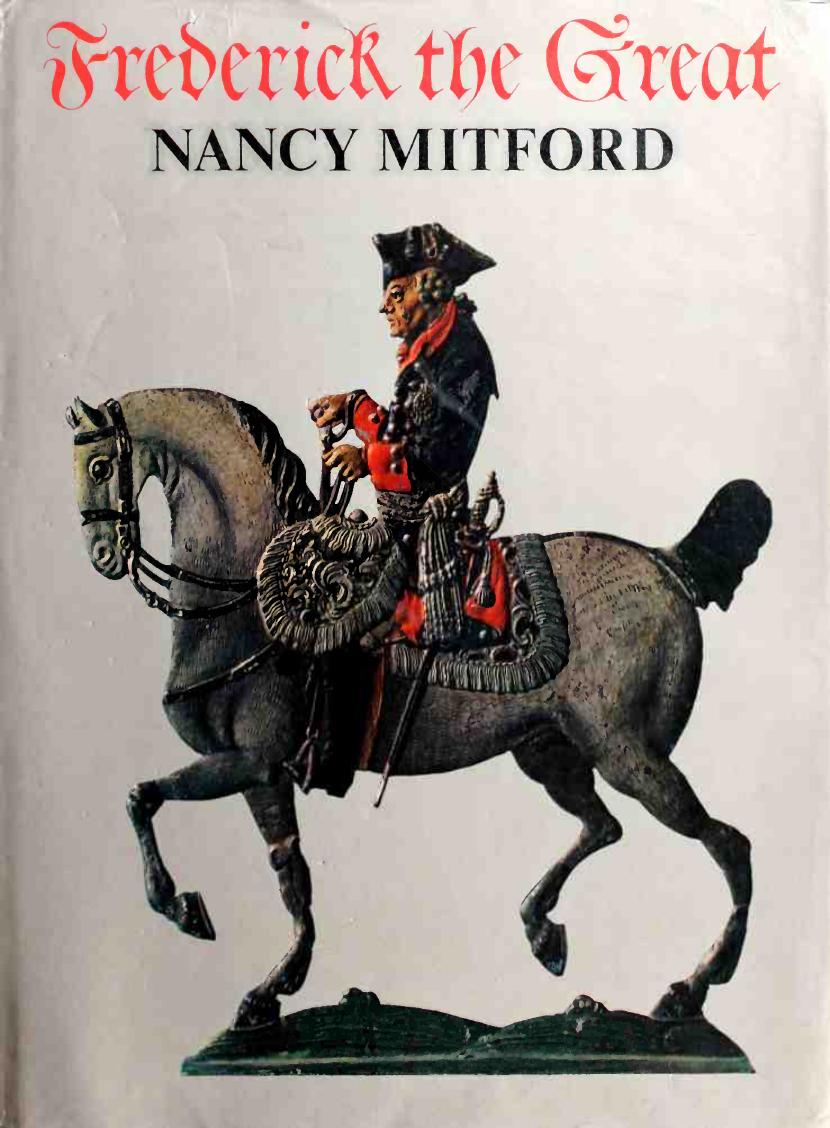Frederick the Great by Nancy Mitford

Author:Nancy Mitford
Language: eng
Format: epub, pdf
ISBN: 978-1-59017-642-9
Publisher: New York Review Books
Published: 2013-07-02T16:00:00+00:00
The answers seem to have been satisfactory and the Venetian was decorated with the new order Pour le Mérite, which was exclusively for Prussian subjects. His title of Count had been given him by Frederick. But Algarotti was a restless creature. He began to feel ill at Berlin. Frederick sent him to take the waters at Eger; it was very dull there and he asked for leave to go and stay with Prince Lobkowitz at Sagan—the doctor thought the journey would be good for him. Short leave was granted. But the weather changed; he sweated and suffocated during meals, and the doctor thought the journey to Berlin would not be good for him. All these fevers and feeblenesses, Frederick said, could only mean that Algarotti was in love. He told him to answer this letter in person, which he did. Frederick, who was a great believer in exercise, advised him to go out riding. Algarotti hated riding; he said it would be tiresome if, in order to activate the blood, he were to break a few vertebrae in his neck.
A new secretary, Claude Étienne Darget in some ways took the place of Jordan; like Jordan he was a good, almost saintly man, and devoted to the King. He had been attached to Valory and had shown courage and loyalty during the Silesian war when Hungarians broke into the house where he and Valory were billeted, bent on kidnapping His Excellency. Darget calmly pretended to be the ambassador and they took him away—it was a brave act on his part as these irregulars were highly so in their behaviour, and almost anything might have happened to him—luckily they did him no harm. Darget, like many of Frederick’s associates, was a hypochondriac. D’Argens was another; Voltaire and Algarotti used poor health, real or imaginary, to further various designs. The King himself, who was never really well, seldom out of pain, hardly mentioned the fact; in no way did it interfere either with his work or with his amusements. Rothenburg, dying now, in agony, from his wound, was utterly stoical.
The moans and groans of healthy people exasperated the King or made him laugh. ‘One does as one wishes with the body—when the soul says quick march it obeys.’ His intellectual friends, his beaux esprits, were incapable of saying ‘quick march!’ and he was very much inclined to tease them. He ends a note to Darget: ‘Good-bye—I wish you a good job in the privy, abundant urination and those agreeable movements of nature which reassure you as to your virility.’ To d’Argens, prolific in new illnesses, ‘As I’m clearly never going to see you again in this world I’ll give you a rendezvous in the valley of Jehoshaphat and there hand over to you the pictures in Sans Souci which you have coveted for so long.’ ‘One is entitled to like being ill but overeating is incompatible with health, nor is total rest good for the body.’ D’Argens played up to Frederick’s teasing and enjoyed it until, years later, Frederick went too far.
Download
Frederick the Great by Nancy Mitford.epub
Frederick the Great by Nancy Mitford.pdf
This site does not store any files on its server. We only index and link to content provided by other sites. Please contact the content providers to delete copyright contents if any and email us, we'll remove relevant links or contents immediately.
| Belgium | France |
| Germany | Great Britain |
| Greenland | Italy |
| Netherlands | Romania |
| Scandinavia |
Room 212 by Kate Stewart(5091)
The Crown by Robert Lacey(4791)
Endurance: Shackleton's Incredible Voyage by Alfred Lansing(4743)
The Iron Duke by The Iron Duke(4337)
The Rape of Nanking by Iris Chang(4189)
Joan of Arc by Mary Gordon(4080)
Killing England by Bill O'Reilly(3987)
Say Nothing by Patrick Radden Keefe(3965)
I'll Give You the Sun by Jandy Nelson(3417)
Shadow of Night by Deborah Harkness(3341)
Hitler's Monsters by Eric Kurlander(3320)
Mary, Queen of Scots, and the Murder of Lord Darnley by Alison Weir(3189)
Blood and Sand by Alex Von Tunzelmann(3181)
Eleanor & Park by Rainbow Rowell(3139)
Darkest Hour by Anthony McCarten(3112)
Margaret Thatcher: The Autobiography by Thatcher Margaret(3065)
Book of Life by Deborah Harkness(2913)
Red Famine: Stalin's War on Ukraine by Anne Applebaum(2909)
The One Memory of Flora Banks by Emily Barr(2847)
